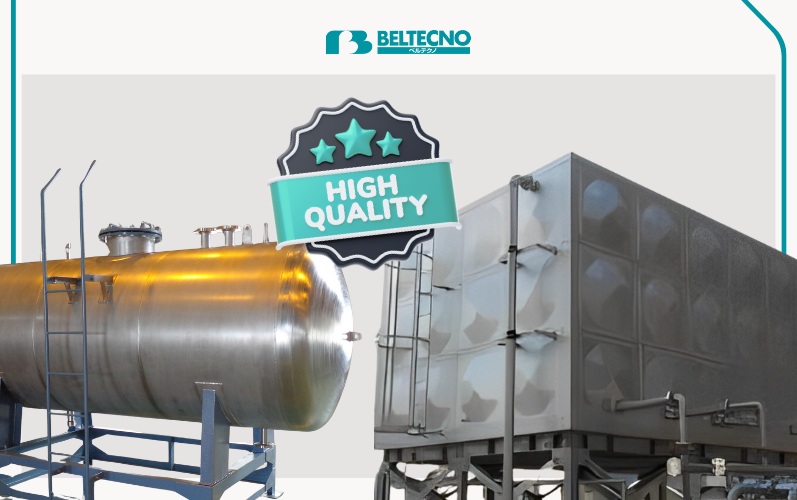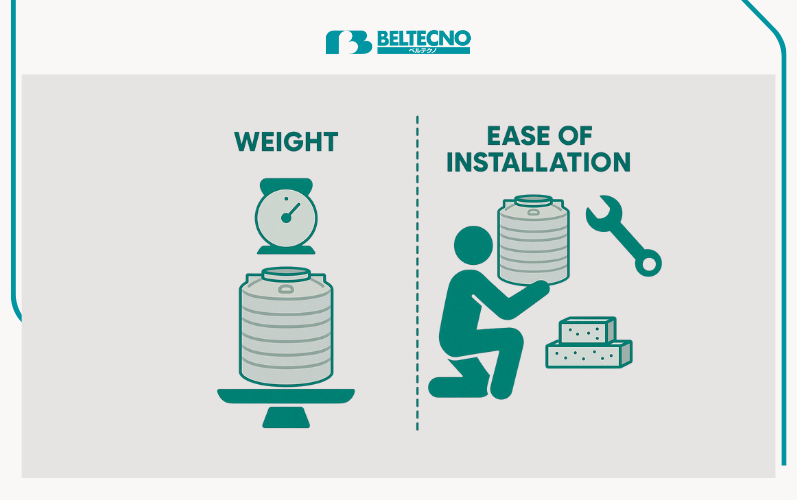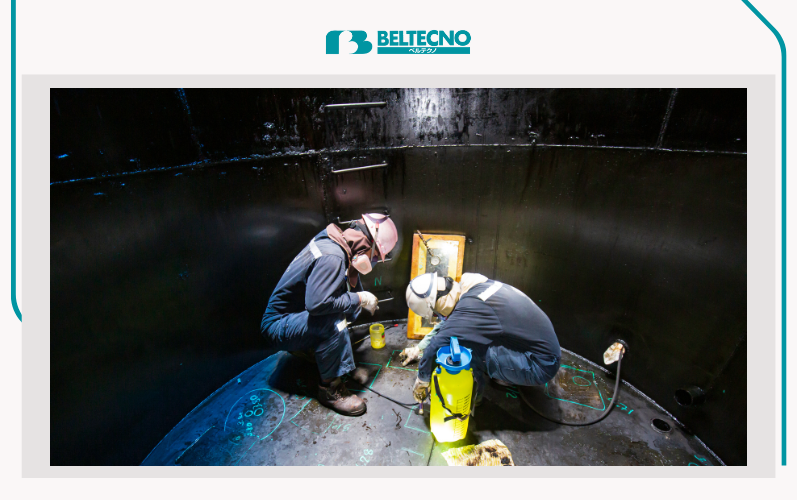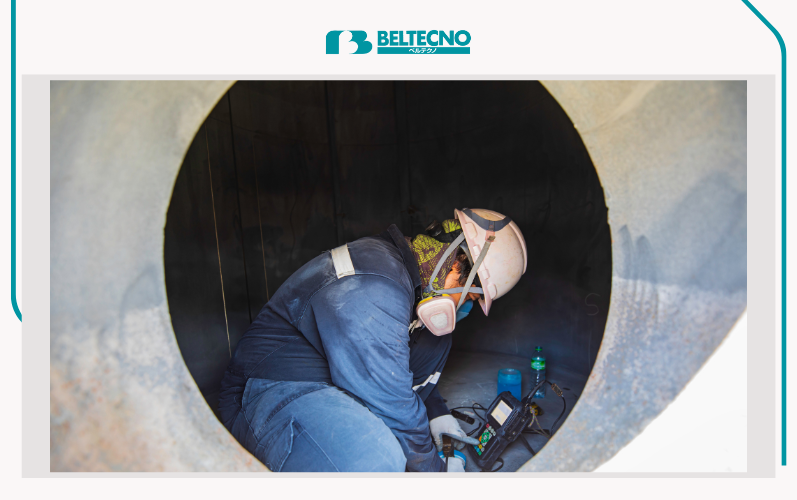Aluminium Water Tank vs Stainless Steel Water Tank?
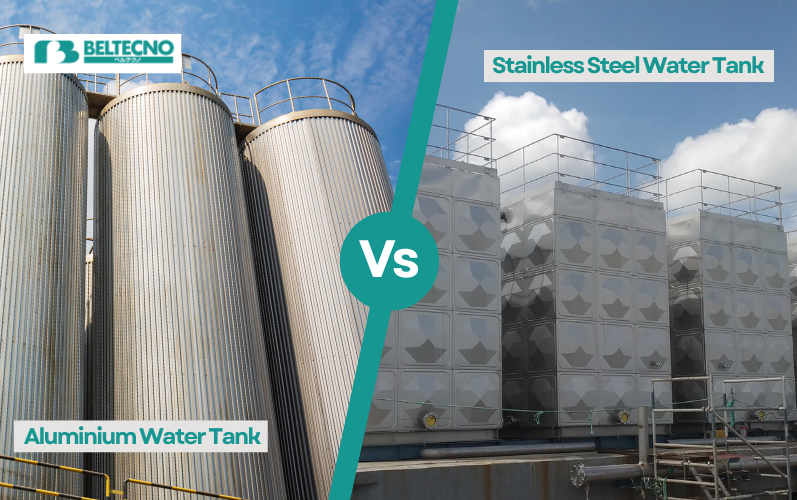
The two most commonly used tanks across most industries are Aluminium and Stainless Steel.
Both these tanks have loyal supporters in their respective industries and have been widely used for a very long time.
So, if you’re trying to decide between an aluminium water tank and a stainless steel tank, we can totally understand your dilemma. The choice is not as simple as “one is better than the other.” It depends on your priorities.
And that’s why we are here with the Aluminium Water Tank vs Stainless Steel Water Tank guide.
Now you can compare these two metals across several important factors and make an informed decision that suits your project or business needs!
-
Durability & Lifespan
The first factor that any industry looks at before investing in a water tank is durability & lifespan.
If the water tank is not durable enough or has a shorter lifespan, then the maintenance cost can be high, and the overall return on investment can be low.
Now, when we compare raw durability, stainless steel generally outlasts aluminium.
The stainless steel outer layer is made of chromium. Due to the presence of chromium content in the outer layer, it forms a protective passive layer.
This passive layer is extremely resistant to corrosion, pitting, and staining, even in difficult environments. In many industrial or marine applications, stainless steel tanks can last 30-40+ years with proper maintenance.
Aluminium water tank, while corrosion-resistant thanks to its natural oxide layer, isn’t as immune to long-term wear in aggressive conditions.
-
Weight & Ease of Installation
The second comparison factor between these two is weight & ease of Installation. But why should you consider this factor before purchasing the water tank?
You might be thinking water tank installation is a one-time thing, but is it?
In future, you might need to relocate the water tank or expand your facility, which will require you to move the tank. Now, if this is the case, then a lightweight water tank can be the best!
Now, coming to comparing the two based on strength.
Aluminium has less tensile strength than stainless steel. This means that for applications requiring high-pressure resistance, structural integrity, or impact durability, stainless steel can use thinner walls and still outperform aluminium.
-
Maintenance & Cleaning
Both these materials are quite low-maintenance, but their maintenance needs may differ. This factor is important, especially for those industries where cleaning is critical, for example, the pharmaceutical or food and beverage industries.
Stainless steel is popularly known for its easy-to-clean property. Due to its sleek surface, it doesn’t rust and resists bacterial growth.
Aluminium, on the other hand, doesn’t rust either, but it oxidises. When aluminium oxidises, it leaves a dull grey layer on the tank surface.
This oxidation on the surface actually protects the underlying metal, but disrupts the overall look of the material. Aluminium can also suffer from galvanic corrosion if it’s in contact with certain metals in a moist environment.
Maintenance schedules will vary depending on environmental exposure, but stainless steel generally needs less cosmetic upkeep in the long term.
-
Hygiene & Safety
For industries where hygiene and safety are critical, stainless steel is the gold standard for water storage.
Its non-porous surface and repeated sterilisation mean water purity is guaranteed in the long term.
Aluminium is lightweight and used in applications like beverage cans, but not so good for uncoated water tanks, especially if the water is slightly acidic, alkaline or contains minerals.
Acidic or alkaline water can easily cause corrosion in aluminium water tanks. In these cases, aluminium water tanks need coatings or anodising, whereas stainless steel can handle these conditions without extra treatment.
-
Cost & Return on Investment

At first glance, aluminium is cheaper per kg than stainless steel. But stainless steel is denser, so the total material cost for a tank of the same size can vary, and in some cases, the gap may be smaller than you think.
When you factor in lifespan and maintenance, stainless steel gives a stronger ROI.
Its ability to last decades with minimal maintenance is especially valuable in harsh or corrosive environments.
Aluminium can save you on initial purchase and installation costs due to its lighter weight, but these savings may be offset by the need for earlier replacement or extra coatings.
Both metals retain good scrap value at the end of life, but stainless steel generally gets a higher price in recycling markets due to its alloy composition and high demand.
Final Verdict: Aluminium Water Tank vs Stainless Steel Water Tank?
Here’s a quick summary comparison:
| Factor |
Stainless Steel Water Tank |
Aluminium Water Tank |
| Durability |
30-40 years with proper care |
10–15 years typical |
| Weight & Strength |
Light but high tensile strength |
Very light but low tensile strength |
| Maintenance |
Low maintenance without coatings |
Needs coatings in harsh settings |
| Hygiene |
Excellent |
Good with requires additional coating |
| Cost |
Higher upfront, better ROI |
Lower upfront |
From the above comparison table, we can see stainless steel is the clear winner for its durability, high tensile strength, low maintenance and hygiene.
With a life span of 30-40+ years if properly maintained, it outperforms aluminium in harsh environments and applications where safety and long-term reliability are key.
Also read: Comparison between Concrete, Bolted, FRP and Stainless Steel Water Tank
Why Beltecno Stainless Steel Panel Tanks?
Beltecno offers the best stainless steel panel tanks that are precision-engineered and built with Japanese technology.
Modular panel design allows flexibility in size and installation, with high-grade stainless steel for corrosion resistance and structural integrity.
Tanks maintain water quality by preventing bacterial growth and are designed to perform in various climates and industrial conditions. Durability, hygiene and innovative design make Beltecno tanks the industry benchmark.
Frequently Asked Questions (FAQs)
Q- Which lasts longer, aluminium or stainless steel?
If we talk about a longer life span, then, with minimal maintenance, stainless steel lasts up to 30-40+ years, even in harsh environments.
Check out our product page
Q- What metal lasts the longest in water?
The nature and quality of the water significantly impact the metals. But in general, marine-grade stainless steel outperforms aluminium in long-term water exposure.
Q- Can aluminium rust?
No, aluminium doesn’t rust, but it oxidises, forming a protective layer.
Q- Which is costly: aluminium or stainless steel?
Stainless steel tanks have a high upfront cost but have low maintenance costs and a high ROI. Meanwhile, aluminium can have low upfront costs, but maintenance costs are comparatively high, and there is less ROI.
Q- Which is better for the environment?
Both the stainless steel water tanks and aluminium water tanks are environmentally friendly.
Conclusion
In this blog, we have compared the two most used materials in the water tank manufacturing: stainless steel and aluminium.
Although both stainless steel water tanks and aluminium water tanks have their unique points of difference, if we compare the two, there is one clear winner.
Compared over the life span, hygiene, and reliable performance in demanding conditions, stainless steel is the clear leader.
We hope this blog will help you make an informed decision!
Need some more clarity? Contact Beltecno today to discuss your project and find the perfect tank solution for your application.
Read: Types of Water Tanks
